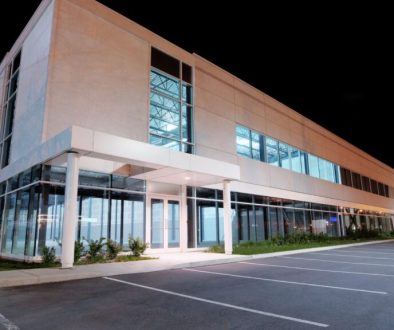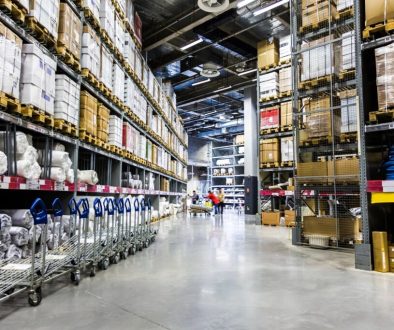Creating an Annual Maintenance Plan for Commercial Buildings
Creating an Annual Maintenance Plan for Commercial Buildings
Creating an annual maintenance plan for commercial buildings is crucial for optimizing operational efficiency, ensuring safety, and extending the lifespan of the facilities. A well-structured plan not only helps in preventing unexpected breakdowns but also aids in budgeting and resource allocation. In this article, we will explore the essential components of an effective maintenance plan, its significance, and actionable strategies that facility managers can implement to enhance their building operations.
Introduction
As a facility manager or property owner, the responsibility of maintaining a commercial building encompasses a wide array of tasks. From managing repairs and inspections to ensuring compliance with safety regulations, the complexity of these duties can be overwhelming. An annual maintenance plan acts as a roadmap, guiding the building management through the year while prioritizing tasks, allocating budgets, and mitigating risks associated with facility management. In this comprehensive guide, we will delve into the key components of an effective annual maintenance plan, including routine inspections, preventive maintenance strategies, compliance with regulations, and budgeting considerations.
Understanding the Importance of an Annual Maintenance Plan
- Regular maintenance is essential for the efficient and safe operation of commercial buildings. Statistics show that facilities that adopt a proactive maintenance approach can reduce their operational costs by up to 30%. This is primarily due to the reduced likelihood of costly emergency repairs and downtime caused by equipment failure.
- Furthermore, a well-maintained building fosters a positive environment for employees and customers alike. Clean, functional, and safe spaces enhance the overall experience, which is pivotal for businesses that rely on foot traffic and customer satisfaction.
- In addition, regulatory compliance is a significant aspect of building management. Many commercial buildings are subject to local, state, and federal regulations. A comprehensive maintenance plan ensures that all aspects of compliance are addressed in a timely manner, thus avoiding potential penalties or legal disputes.
Components of an Effective Maintenance Plan
- Routine Inspections: Conducting routine inspections is the foundation of an effective maintenance plan. Regular evaluations of building systems such as HVAC, plumbing, electrical, and structural components help identify potential issues before they escalate into major problems. For instance, a monthly HVAC inspection can reveal inefficiencies that, if left unchecked, may lead to costly replacements or repairs.
- Preventive Maintenance Schedules: Preventive maintenance involves scheduling regular maintenance tasks based on manufacturer recommendations and historical performance data. Establishing a preventive maintenance schedule for equipment like elevators, fire alarms, and security systems ensures that these systems operate efficiently and comply with safety regulations.
- Emergency Preparedness: Part of any maintenance plan should include an emergency preparedness strategy. This includes developing protocols for unexpected events such as natural disasters, equipment failures, or safety incidents. Regular training and drills for staff ensure everyone knows their roles during emergencies, which can significantly reduce response times and mitigate damage.
- Budgeting and Resource Management: A well-defined budget that aligns with the maintenance schedule is critical. Facility managers should allocate funds for routine maintenance, emergency repairs, and unexpected expenses. Moreover, leveraging technology for resource management, such as Maintenance Management Software (MMS), can streamline budgeting and reporting processes.
Best Practices for Implementing an Annual Maintenance Plan
- Establish Clear Objectives: Begin by defining clear objectives for the maintenance plan. Whether the goal is to improve energy efficiency, enhance safety, or reduce costs, having specific goals helps create focus and accountability.
- Engage Qualified Professionals: Collaborate with qualified contractors and service providers for specialized tasks. For instance, hiring certified electricians for electrical inspections or licensed HVAC technicians for system maintenance ensures that work is performed up to code and within industry standards.
- Utilize Technology: Incorporate technology to enhance efficiency in maintenance tasks. Utilizing computerized maintenance management systems (CMMS) can assist in tracking maintenance work orders, scheduling inspections, and storing historical data for better decision-making.
- Document Everything: Keeping detailed records of all maintenance activities, inspections, and repairs is vital. Documentation provides insights into trends and performance over time, assists in compliance audits, and supports future planning efforts.
Evaluating and Adjusting the Maintenance Plan
- Regular Review and Adjustments: An effective maintenance plan is dynamic and should be regularly reviewed and adjusted based on performance metrics. Conduct quarterly or biannual reviews to assess the effectiveness of the plan, identify areas for improvement, and adjust budgets as necessary.
- Feedback Mechanisms: Implement feedback mechanisms involving staff and tenants to gauge the effectiveness of the maintenance program. Surveys and regular check-ins can provide valuable insights and help identify issues that may not be apparent through inspections alone.
- Training and Development: Continuous training for maintenance teams on the latest industry standards, technologies, and best practices is paramount. Investing in training not only improves the quality of work but also enhances staff morale and retention.
Conclusion
In conclusion, the creation of an annual maintenance plan for commercial buildings is not merely a best practice but a necessity for effective facility management. By prioritizing routine inspections, preventive maintenance, and compliance, building managers can save costs, enhance safety, and ensure operational efficiency. As the commercial real estate landscape evolves, staying ahead of maintenance needs will be crucial for success. Engage with industry professionals and utilize technology to build a comprehensive and adaptable maintenance plan. Start today by evaluating your building’s needs and setting a proactive maintenance strategy that safeguards your investment and boosts overall performance.



